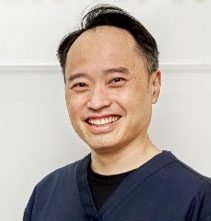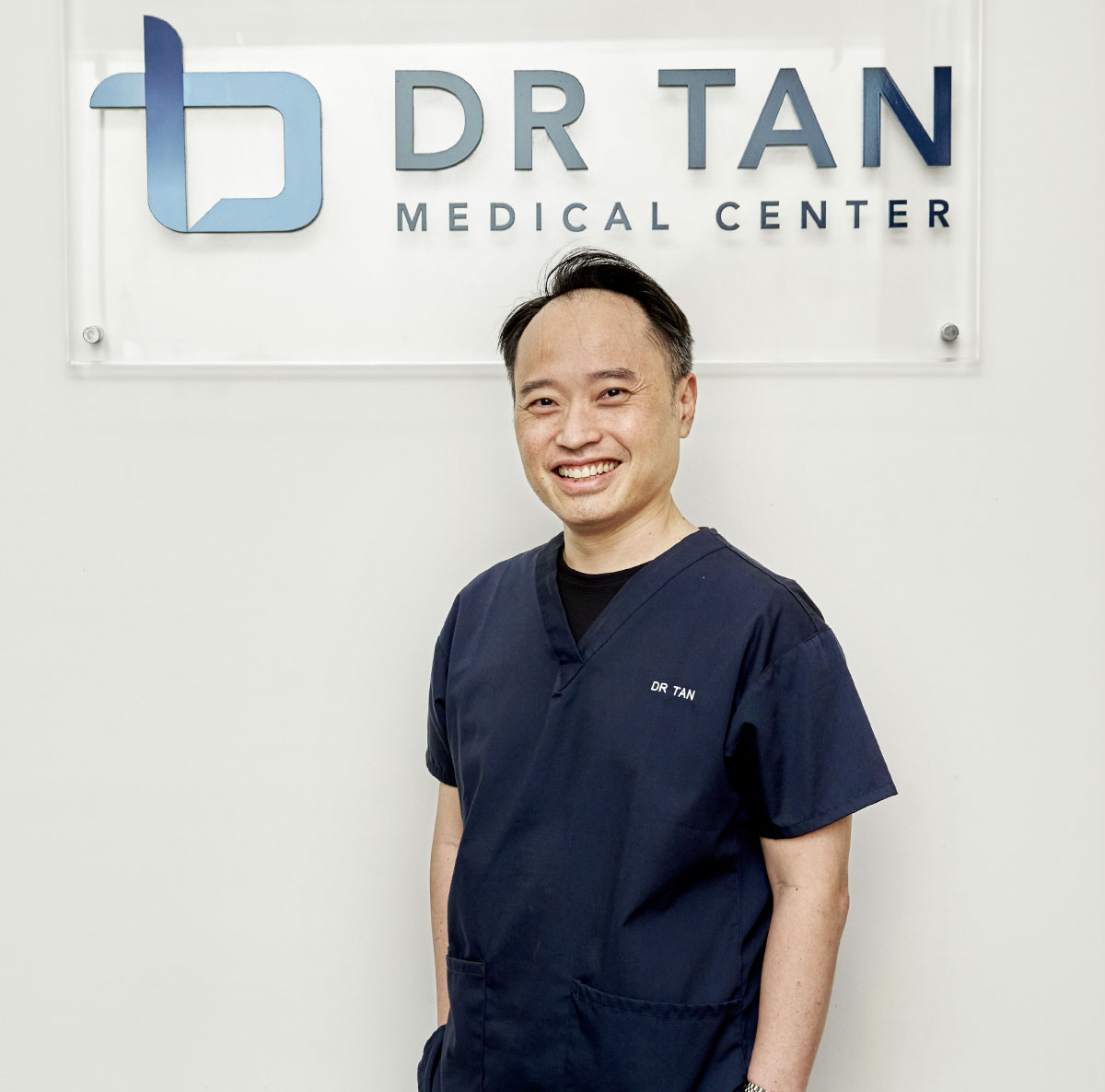Most Common STDs in Singapore – What You Need to Know
Blog

Dr Tan Kok Kuan
Men’s Health & Sexual Health Doctor
MBBS (S’pore), Cert. Men’s Health, Cert. Clinical Dermatology,Member, Academy for Men’s Health (Singapore)Member, Singapore Association for the Study of ObesityMember, International Society of Sexual Medicine
Sexually transmitted diseases (STDs) are more common in Singapore than many people realise, and most are manageable with timely testing and treatment. Common infections seen in clinics include chlamydia, gonorrhoea, syphilis, genital herpes and human papillomavirus (HPV). These conditions can present differently from person to person. Some cause noticeable symptoms, while others remain silent for months. Understanding what to look out for and knowing when to get screened can help you make clear, grounded decisions about your sexual health.
Six Common STDs in Singapore
According to the Communicable Diseases Agency (CDA), infections such as chlamydia, gonorrhoea and syphilis continue to make up most of the reported bacterial STD cases, while human papillomavirus (HPV), genital herpes and HIV are among the most common viral infections seen in clinics.
1. Chlamydia
Chlamydia is one of the most common STIs in Singapore. It often causes no symptoms, so many people may not even realise they’re infected. When symptoms do occur, they can include unusual discharge, pain when passing urine or discomfort in the lower abdomen.
If left untreated, chlamydia can lead to long-term complications such as infertility or inflammation of the reproductive organs. Regular testing and early treatment are the best ways to stay protected and prevent spreading the infection.
2. Gonorrhoea
Gonorrhoea is another bacterial infection that can cause pain or burning when passing urine, along with thick yellow or green discharge. Like chlamydia, it can infect both men and women.
Some strains of gonorrhoea in Singapore have become resistant to certain antibiotics, so proper medical testing and treatment are important to ensure the infection is fully cleared.
3. Syphilis
Syphilis develops in stages and can look very different depending on how long a person has had it. It often starts with a painless sore, followed by skin rashes or other symptoms. If left untreated, syphilis can eventually affect the brain, heart or eyes.
The good news is that syphilis can be cured completely with the right treatment. Additionally, regular health check-ups and blood tests can help detect it early.
4. Human Papillomavirus (HPV) / Genital Warts
HPV is a very common virus spread through skin-to-skin sexual contact. Some types cause genital warts, while others—known as high-risk strains—are linked to cancers such as cervical, anal or throat cancer.
Vaccination provides strong protection. The HPV vaccine, available for both men and women, helps prevent infection from several common strains and is part of Singapore’s national vaccination programme.
5. Genital Herpes (HSV-2 & HSV-1)
Genital herpes is a frequent cause of small blisters or sores in the genital area that can be painful or itchy. Once someone is infected, the virus stays in the body and can flare up again from time to time. Although there is no cure, antiviral medication can help manage symptoms and reduce the chance of passing it to others.
6. Human Immunodeficiency Virus (HIV)
HIV continues to be closely monitored as a major public health concern. In 2023, the Ministry of Health reported 209 new resident HIV cases, with most involving male patients. Fourth-generation rapid tests can detect HIV infection as early as 14 days after exposure, allowing earlier diagnosis and timely treatment that supports long-term health.
Common STD Symptoms to Watch For
Recognising the symptoms of sexually transmitted diseases (STDs) helps you seek medical attention early. However, many infections may not cause noticeable signs. The following are some symptoms to be aware of:
- Pain or Burning During Urination: Often linked to chlamydia or gonorrhoea, which are among the most common bacterial STDs in Singapore.
- Genital Ulcers or Blisters: May indicate herpes or syphilis, both of which can cause sores in the genital area.
- Painless Sore that Heals on Its Own, Followed by a Rash: A classic feature of syphilis in its early stages.
- Genital Warts or Small, Cauliflower-like Growths: Commonly associated with human papillomavirus (HPV) infection.
- Persistent Flu-like Illness After a Risky Sexual Encounter: Could be a sign of acute HIV infection, which can appear shortly after exposure.
Remember: Many STDs are asymptomatic, meaning you may not notice any signs even when infected. Regular and confidential screening is essential for early detection, effective treatment and preventing transmission to others.
STD Testing & Treatment Options at Dr Tan Medical Center
Located in Novena, Dr Tan Medical Center provides comprehensive and confidential STD and HIV testing for both men and women. The clinic welcomes same-day, walk-in appointments with no referral required, offering a discreet and supportive environment for anyone seeking sexual health screening or treatment.
Available Tests and Services
The clinic offers a full range of diagnostic options for early detection and accurate diagnosis of sexually transmitted infections.
Comprehensive STD Panels
: Screening for common infections such as chlamydia, gonorrhoea, syphilis, HIV, herpes, hepatitis B and C, and trichomoniasis.PCR and NAAT Tests
: Molecular-based tests that detect infections like chlamydia, gonorrhoea, trichomonas and mycoplasma using urine or swab samples.Rapid HIV/STD Screening
: Finger-prick blood tests that screen for common STIs, with results available in about 30 minutes.HIV Tests
: Advanced screening that can detect HIV infection as early as 10 to 14 days after exposure through RNA, antigen and antibody analysis.Herpes Culture and DNA Testing
: Tests that analyse samples from genital sores to confirm herpes infection and identify the type of herpes simplex virus (HSV-1 or HSV-2).HPV DNA Testing and Genital Wart Evaluation
: Screens for high-risk HPV strains linked to cervical and other cancers, and evaluates visible genital warts caused by low-risk HPV types.Hepatitis A, B and C Screening and Vaccination
: Blood tests that check for infection or immunity to hepatitis viruses, with vaccination available for hepatitis A and B to prevent future infection.
Treatment and Follow-Up Care
Dr Tan provides evidence-based treatment, tailored to the individual’s specific diagnosis and health needs, ensuring appropriate care at every stage.
Immediate On-Site Treatment
: Most infections can be treated on the same day once a diagnosis is confirmed, helping patients begin recovery without delay.Genital Wart Removal
: Genital warts can be removed through topical medications, cryotherapy, laser procedures, or, in selected cases, circumcision.Partner Testing
: Testing and treating partners is key to managing STD infections and preventing repeated exposure or re-infection.Antiviral Management
: For viral infections such as herpes and HIV, ongoing management is available. This includes pre-exposure prophylaxis (PrEP) and post-exposure prophylaxis (PEP) where suitable, helping reduce the risk of future transmission.Specialist Referrals
: In cases involving complex, recurrent or treatment-resistant infections, patients may be referred to relevant specialists for further evaluation and continued care.
All consultations are conducted in a private, non-judgmental setting where confidentiality is strictly maintained. Patients can expect respectful and professional care at every step of the process.
Tips to Prevent STDs
Practising safer sex and staying informed are key to reducing the risk of sexually transmitted diseases. Here are some steps you can take to protect yourself and your partner:
Use Condoms Consistently
: Condoms provide an effective barrier against most STDs, including HIV, chlamydia, gonorrhoea and syphilis. Use them correctly during every sexual encounter.Get Vaccinated
: Vaccines for HPV and hepatitis B are available and can significantly lower the risk of infection.Limit Sexual Partners
: Reducing the number of sexual partners and having open, honest conversations about testing can help build trust and prevent transmission.Seek PEP
: Post-exposure prophylaxis (PEP) is a short course of HIV medication that can help prevent infection if started promptly after potential exposure. It is best to take this within 72 hours of high-risk exposure.Schedule Regular Screening
: If you are sexually active, consider annual testing to ensure early detection and peace of mind. More frequent screening is recommended when changing partners.
Maintaining sexual health begins with awareness, prevention and timely medical care. If you have concerns about symptoms, potential exposure or testing options, consider visiting Dr Tan Medical Center in Novena for confidential advice and evidence-based care. Regular consultation with a qualified sexual health physician helps ensure early detection, effective treatment and long-term well-being. Contact us today to schedule an appointment.

Meet Our Men’s Health Doctor
Dr Tan Kok Kuan
MBBS (S’pore), Cert. Men’s Health, Cert. Clinical Dermatology, Member, Academy for Men’s Health (Singapore) Member, Singapore Association for the Study of Obesity Member, International Society of Sexual Medicine

Dr Tan Kok Kuan is an experienced doctor specialising in men's health, sexual health and medical weight loss. With over 20 years of clinical experience, he offers confidential and effective screening and treatment services. Notably, Dr Tan was one of the key authors of Singapore’s National HIV PrEP Guidelines and the national blueprint to end HIV transmission by 2030. Dr Tan frequently speaks at local and international conferences and has been featured in the media, where he helps raise public awareness around men’s health and sexual health.
“Every patient deserves our fullest attention.”

10 Sinaran Drive #09-30, Novena Medical Centre, Singapore 307506
Tel: (+65) 6513 0359 | WhatsApp: (+65) 9750 5037
Operating Hours:
Monday to Friday: 8:30 AM to 6:30 PM
Saturday: 9:00 AM to 2:00 PM
Closed on Sundays and Public Holidays



